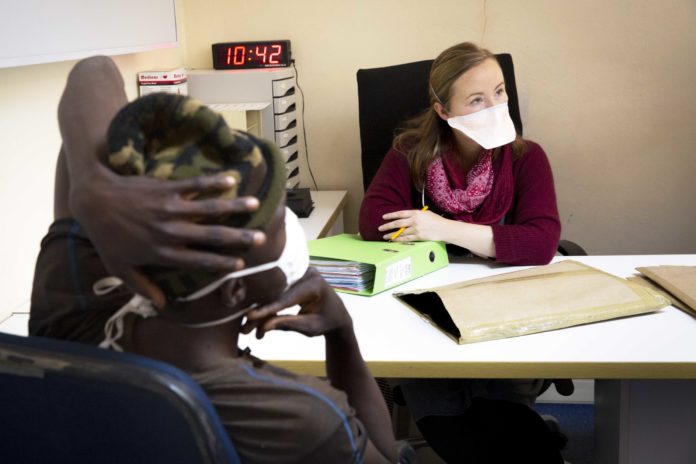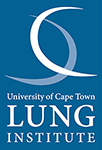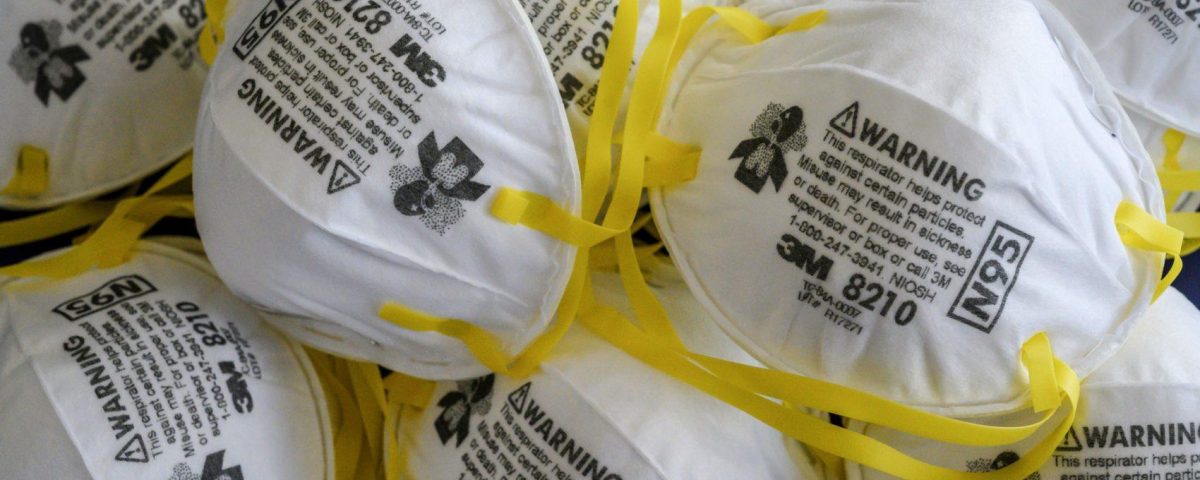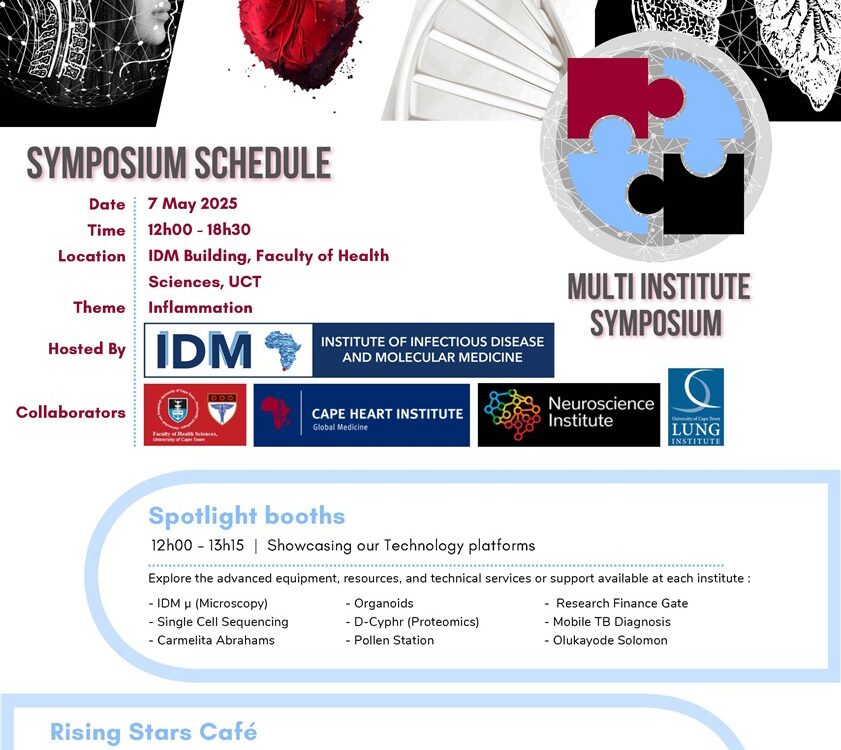
Community-based intervention to identify undiagnosed TB cases
20th January 2020
#CoronavirusOutbreak: This is a healthcare worker’s best defence against TB. Here’s why it might run out.
22nd February 2020South Africa could face TB mask shortage because of coronavirus outbreak
This photo illustration taken on January 28, 2020 shows protective face masks in Bangkok. - Thailand has detected 14 cases so far of the novel coronavirus, a virus similar to the SARS pathogen, an outbreak which began in the Chinese city of Wuhan. (Photo by Mladen ANTONOV / AFP) (Photo by MLADEN ANTONOV/AFP via Getty Images)
A shortage of medical masks used to protect healthcare workers in South Africa against TB could run out in the next six months because of the high demand brought on by the coronavirus outbreak.
Over the past seven weeks, the virus — named COVID-19 — has spread to 25 countries. As the outbreak grows and new cases mount into the tens of thousands, global attention turned to China and, along with it, resources.
The mask most effective at protecting Chinese healthcare workers from contracting the virus, however, is also the only mask used to protect healthcare workers in South Africa from TB. But a spike in global demand for the product is outstripping manufacturers’ ability to produce the masks here and abroad.
Currently, the World Health Organisation says there is a six-month backlog in mask orders globally. Already behind in production, manufacturers are unlikely to be able to catch up as long as the outbreak rages and future orders of the masks could be delayed or only partially filled.
Either way, countries like South Africa that need the masks for TB are unlikely to get what they need when they need it.
TB remains the leading cause of death in South Africa, according to 2016 data from Statistics South Africa. In particular, healthcare workers are at an exceptionally high risk of getting infected.
In South Africa, the masks are procured nationally and also provincially. National health department spokesperson Popo Maja confirms the department is experiencing delays on shipments of respirator masks.
He attributes delays to major mask-producing countries such as India and China banning exports of the protective gear to secure their own national supplies. South Africa’s few local producers of the speciality masks, he warns, cannot immediately supply increased numbers of the masks.
The national department was unable to confirm whether or not any provinces were experiencing shortages.
South Africa, along with Egypt and Algeria, is estimated to be at highest risk for new coronavirus cases on the continent, according to a study published in The Lancet. No cases have been confirmed in South Africa yet.
Supply and demand: Local producers unlikely to keep up
In the Eastern Cape, multinational firm 3M held the previous provincial tender to supply the respirator masks. A current tender released in November 2019 has not yet been awarded.
3M, alongside every other company in the world that makes these masks, has seen a skyrocketing demand for the products.
The company’s technical and regulatory manager Rani Naidoo says that 3M has enough stock to fill current requests but would be unable to fill large volumes of emergency orders.
Naidoo says that in the wake of the outbreak from companies and concerned citizens who wanted to buy stock to send to China.
She explains: “I think I was fielding something like 80 calls a day with people looking for a price.”
In the Western Cape, four contracted suppliers — one of whom is based in China — supply the respirator masks. Provincial health department spokesperson Mark van der Heever confirmed that the Western Cape has sufficient stocks of the mask and is awaiting more. No other province responded to requests for comment.
READ: Still no coronavirus cases in South Africa – NICD
Durban-based Allenco Medical Distributors imports masks from British manufacturer Halyard Health and supplies the Western Cape. Director Allen Mudaly says his company has adequate stocks now, but can’t guarantee that will always be the case.
Farther north, Liora Medical Supplies in Gauteng also imports from Halyard Health and is the only company awarded national health department tender for the gear.
Mudaly warns that “if we have an outbreak of the coronavirus in South Africa, we may not be able to meet the demand”.
Halyard Health regional spokesperson Donatella Manca told Bhekisisa that the UK firm has, like other manufacturers, experienced “rapidly expanding demand for our products” amid the outbreak. The company is trying to quickly scale-up production alongside smaller local firms such as Greenline Distributors and U-Mask.
Similarly, in East London, German mask manufacturer Dräger usually produces around 20 000 to 50 000 masks a month at their factory. However, their order requests have soared to one-million, says Quinton Taylor, product manager for Dräger South Africa.
“Our production facilities are aimed at the southern African market, it’s not aimed anywhere near being able to produce a mask for someone that wants a million masks,” says Taylor.
“Everyone is trying to order more material [for the masks]. The guys that manufacture the material are eventually going to run out with the numbers that are coming through. It’s inevitable.”
Outbreak overseas could endanger the fight against a local killer
Almost two months into the COVID-19 outbreak, the bulk of the world’s more than 74 000 cases remain in China. The World Health Organisation (WHO) is working with manufacturers and distributors to ensure the country has enough masks — particularly for its healthcare workers, who are at the most significant risk of infection.
With China taking priority, there is likely to be shortages in the masks elsewhere in coming months. Meanwhile, mounting backlogs in orders amid increasing demand and a looming shortage in the materials used in the masks are also likely to jeopardise supply.
This could be bad news for South Africa’s fight against TB.
The respirators masks, which come in two different shapes, are the only masks that are proven to help prevent the transmission of TB. The devices are a lifeline for South African doctors and nurses who are at high risk of contracting TB from patients.
ALSO READ: SA man suspected of having coronavirus cleared and ready to be discharged
Ideally, the masks are just one way hospitals and clinics are supposed to help protect healthcare workers from contracting the airborne-disease, including ensuring rooms are well ventilated to ensuring that health facilities are designed to limit transmission.
For example, some clinics and hospitals have introduced covered, outdoor waiting areas for TB patients. But, says University of Cape Town professor Keertan Dheda, extra measures like these are rarely taken.
“In most public and private healthcare facilities, these controls are not properly in place, and so the [mask] becomes quite an important protective measure,” he explains.
If South Africa runs short of these masks, there is no alternative.
Dheda warns: “The lack of these masks will have a substantial impact on increasing the risk of healthcare workers.”
* Correction: 24 February. An earlier version of this article stated that the manufacturing company 3M had won the provincial tender to supply the Eastern Cape with respirator masks. This has been updated to reflect that the current tender has not yet been awarded
This story was produced by the Bhekisisa Centre for Health Journalism. Subscribe to the newsletter
https://m.news24.com/SouthAfrica/News/south-africa-could-face-tb-mask-shortage-because-of-coronavirus-outbreak-20200221



